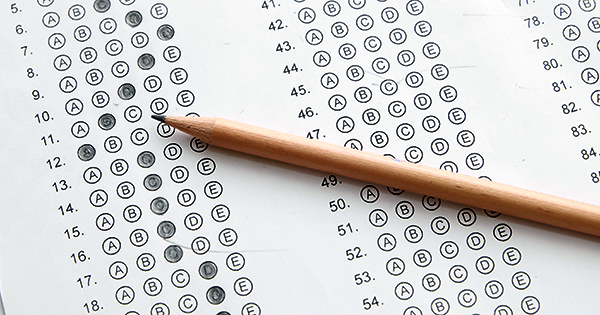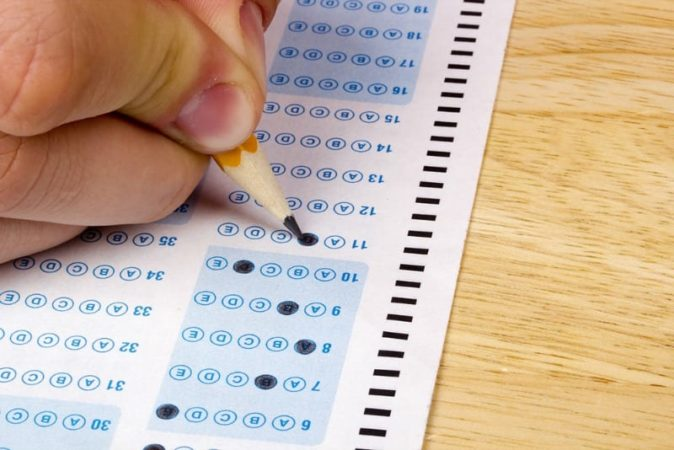The College Board’s Problem with Accommodations
December 9, 2022
Most people would assume that requiring students with learning disabilities like ADHD to stay in a room doing nothing for six hours would be counterintuitive, but not the College Board. Many students with learning disabilities such as ADHD struggle with attention and time management, and require extra time to complete standardized tests like the SAT, ACT, and AP tests. This isn’t an unfair advantage, but quite the opposite; it provides an equal opportunity to kids with learning disabilities so that they can perform to the best of their ability in a test that isn’t designed for them. I myself am someone who was born with ADHD. As many disadvantages as it may lend me, it’s a part of who I am – I simply couldn’t imagine living without it. Despite this, and despite the fact that I have a need for it, I don’t ask for extra time on standardized tests. For me, it does more harm than good.
I struggle with time management. I get distracted sometimes when reading things, which requires me to go back and read them again, which wastes precious time on important tests. But due to the personal experiences of me, my father, and my sister, I know that asking for extra time on College Board-issued assessments will only work to stress me out even more. The adverse effect of asking for extra time on the SAT that they don’t initially tell you is that, if you ask for it, you can’t leave the room for the entire allotted period of time. Now, this is something that is true for every person taking the SAT, no matter how much time they get for it. But you’d think that instating this even for people who have extra time – and often suffer from attention disorders – would be a bad idea, right? Keep in mind that you aren’t allowed to use your phone (including to call your parents) or even read a book. It’s worth mentioning that this detail isn’t touched upon on the official College Board website. I believe this is not the cause of innocent incompetence, but systemic ableism put in place to prevent kids with disadvantages from getting extra time in the first place.
On my first AP test, I asked for extra time, but I wasn’t aware of the fact that I couldn’t leave the room, and I had a panic attack because of the fact that I had no way of contacting my parents to let them know this detail, and convey an appropriate time to pick me up. It’s probably the only time I’ve had a panic attack in my time after being properly medicated. I’m sure I’m not the only kid who’s gone through something like that, either. According to Treatments of Adults with ADHD, (Kolar D. et al) 40%-60% of adults with ADHD have had an anxiety disorder in their lifetime. For a person with anxiety from ADHD, having to sit still for such a large chunk of time in order to receive proper accommodations can turn the SAT from a time-sensitive and potentially slightly stressful test to a behemoth of anxiety and wasted time. Extra time should be something that is free for students with disorders as a way to relieve stress brought on by time management skills and troubles with attention and be optional for students to spend the whole time or just a portion.
It’s also worth mentioning that even from a logical standpoint, there is no justification for having any student – especially one with ADHD – be forced to stay in the testing room at the risk of their score being canceled. Because what is the point of a student staying in the test room for such a long amount of time, really? What harm could be done by releasing kids from the room, if they’ve already finished it? Even if the test is divided into sections based on subject, and having the kids coming and going could interfere with the schedule, then why not simply allow them to work on something else once they finish? Or even just read a book? The answer is simple: The College Board would rather treat the teens taking their tests as incompetent children than capable almost-adults, and uses this policy as a way to actively discourage even heavily disadvantaged students from using extra time, under the risk of being left in an understimulating, barren classroom for hours on end with quite literally nothing to do.
It’s about time that someone actually considered the absolute lack of logic in this decision, instead of accepting it as “what it is” without question. This at best illogical and at the worst potentially harmful testing policy is just an underlying sign of The College Board’s many, many flaws. The problem is that there is little students like me can do about it, as the corporation has monopolized standardized testing to a simply absurd degree. It’s impossible to get into most colleges without having to work around this company and its flaws. If anything, I hope this article can help a student with a disorder or a parent of one to put some more thought into their decision to receive extra time, and maybe inspire more to question the College Board’s authority on such matters.
Kolar D, Keller A, Golfinopoulos M, Cumyn L, Syer C, Hechtman L. Treatment of adults with attention-deficit/hyperactivity disorder . Neuropsychiatr Dis Treat. 2008;4(2):389-403
https://doi.org/10.2147/NDT.S6985. Accessed 3 Oct. 2022.
HAWTHORNE, SUSAN C. C. “Institutionalized Intolerance of ADHD: Sources and Consequences.” Hypatia, vol. 25, no. 3, 2010, pp. 504–26. JSTOR, http://www.jstor.org/stable/40928635. Accessed 3 Oct. 2022.

























